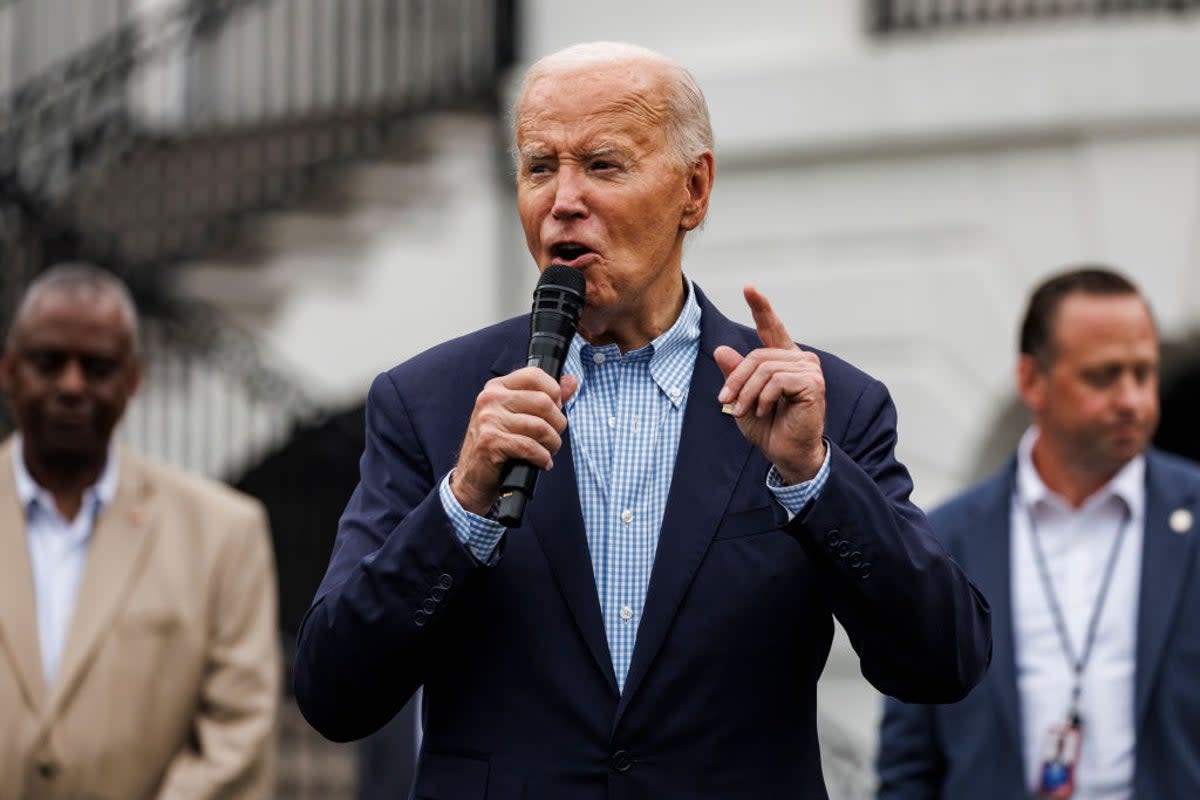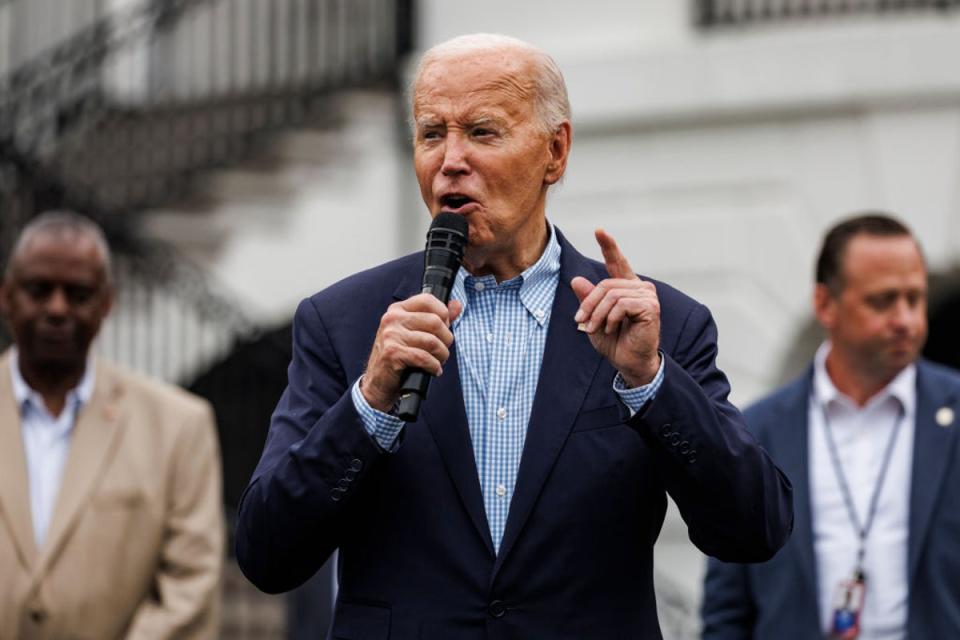UN human rights rapporteur says US has no Iran strategy under Biden

A top United Nations human rights official attacked the Biden administration’s supposed lack of a broad strategy for dealing with Iran and its various actions across the Middle East during a congressional briefing on Tuesday.
The organization’s Special Rapporteur on the human rights situation in Iran, Javaid Rehman, was on Capitol Hill Tuesday morning for a briefing with staff members from two bipartisan House caucuses. He spoke to The Independent afterwards, and denied that the Biden administration had laid out a coherent strategy to deal with Iranian support of militant groups such as the Houthis and Hezbollah.
“No, I don't think so,” said Rehman when asked directly if such a coherent vision had been presented to the US’s international partners. “I think if they had [a strategy],I don't know what the State Department is saying. But from what I've been seeing, it hasn't. That’s why the Iranian regime has been taking advantage.”
“I think you need to be consistent as to what are you going to do to address a regime which is persistently violating the rights of its own people, but is also a threat to the region and to the world. I mean, we had this issue with [Iran’s] support for the Russians in Ukraine, providing drones. So how can you trust the Iranians and deal with them?” he continued.
He also condemned the administration’s prisoner swap deal, which allowed for the release of five Americans detained in Iran in exchange for freeing up $6 billion of Iranian-held money in the US financial system as well as the freeing of an unknown number of Iranians held in US custody.

“Human rights values should take priority. The problem with successive US regimes is that they are willing to do deals with Iranians when it suits them,” said Rehman. “Last year, we saw that the US government agreed to give $6 billion in exchange for these hostages. I think that we should not be dealing with a rogue state.”
Matthew Miller, principal spokesman for the State Department, strongly rejected those characterizations when asked about them by The Independent at his press briefing on Tuesday.
“First of all, I’ll say, everyone is entitled to their opinion,” Miller remarked. “But that is very much one that we would not agree with. If you look at the totality of our policy, we have made clear that we are committed to ensuring that Iran can never obtain a nuclear weapon. We have worked with our allies and partners around the world to ensure that objective.”
“You have seen us impose over 600 export controls and sanctions on Iran and Iran-related entities to counter Iran’s malign influence. You have seen us work with partners in the region through diplomatic measures to try to counter Iran’s influence and take on Iran’s support for terror. So no, it’s not something I would agree with at all,” Miller continued.
Rehman spoke for roughly an hour about his upcoming report, due out July 17th, describing the Iranian government’s continued oppression of protesters and political or religious minorities, which his report will link back to the massacres committed against the Mojahedin-e-Khalq (MEK) and other dissidents in the 1980s. Under Rehman’s view, the massacres of the 1980s occurred under the same culture of oppression responsible for the death of a young woman in the custody of the country’s religious police in 2022, as well as the subsequent crackdowns against demonstrations condemning her murder.
Iran’s government and society is currently undergoing turbulent times once again as elections were called to replace the country’s president, Ebrahim Raisi, after he was killed in a helicopter crash. A candidate characterized by many as a reformist, Masoud Pezeshkian, won the election.
At Rehman’s briefing on Tuesday, he warned that Pezeshkian’s reforms would be limited by the realities of the system which controls Iranian politics and culture.
“The systematic issue that we have, the systematic repression of women and girls, the policy of enforcing hijab, the oppression of minorities, the large-scale executions of political dissidents — that is my main concern and I'm not sure if the change of the new person, the president — the extent to which that can be changed,” he told The Independent afterwards. “I'm not very optimistic.”


